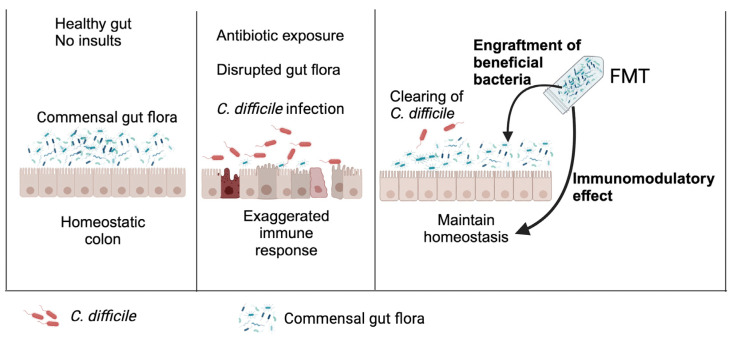Figure 2.
Fecal microbiota transplantation effectively clears C. difficile infection. Commensal gut flora, represented in green and blue, play a crucial role in protection against C. difficile in a healthy gut. However, the use of antibiotic therapy disrupts these commensal bacteria, rendering the gut susceptible to C. difficile infection (indicated as red). The resulting increased inflammation, subsequent to C. difficile infection, creates an environment conducive to the growth of pathobionts, further contributing to dysbiosis and negatively impacting the course of the infection. After fecal microbiota transplantation (FMT), the successful engraftment of beneficial bacteria from the FMT inoculum establishes colonization resistance against C. difficile. Additionally, the bacteria or bacterial-derived metabolites from the FMT inoculum exhibit anti-inflammatory or immunomodulatory effects. These effects help to restore the gut’s immune response to a homeostatic level, ultimately aiding the host in clearing the C. difficile infection.

